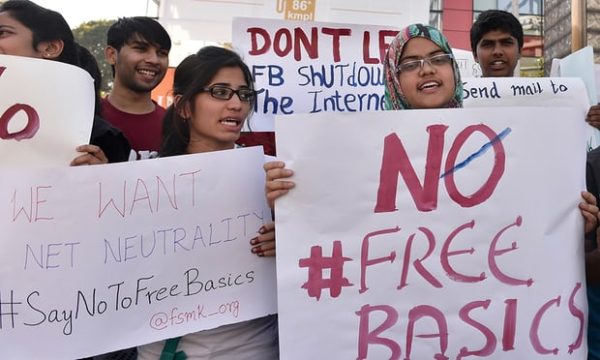India’s communications regulator endorses net neutrality
On Nov. 28, the Telecom Regulatory Authority of India (TRAI) released its recommendations on net neutrality that make it mandatory for telecom companies to treat the internet—declared a basic human right by the United Nations—as a public utility and not a luxury. Telecom companies cannot control the content people access or the speed at which all online traffic flows, TRAI said, nor can they create “fast lanes” with priority content delivery for higher-paying customers. Violators may be fined up to Rs50 lakh ($77,621).
The decision was made after a series of consultations with stakeholders between 30 May 2016 and 4 January 2017. The Trai paper also suggests the formation of a regulatory body to monitor and deal with any such violation of net neutrality.
In India, the debate on net neutrality picked speed after Facebook launched the Free Basics program in December 2015, earlier known as internet.org. Free Basics gives free access to basic internet services to users who could not afford 4G data plans and were still using slower 2G networks. Though, Facebook wasn’t charging users anything extra, the notion of favouring access to certain content went against the basic principle of net neutrality. Trai banned Free Basics and other similar services such as Airtel Zero in February 2016.
TRAI shut out Facebook’s Free Basics program after a prolonged debate, ending the social media giant’s efforts to offer free access to a limited web in India. “While formulating the regulations, the authority has largely been guided by the principles of net neutrality seeking to ensure that consumers get unhindered and non-discriminatory access to the internet,” TRAI had said.
The reaffirmation of net neutrality will be a shot in the arm for the country’s digital economy, India’s IT industry lobby NASSCOM said in a statement. “It would ensure a level playing field for IT and OTT (over-the-top) services providers to innovate and customise in India and provide a constantly expanding range of new services relevant to every individual,” it added.
Another concern with lack of net neutrality is of different speed lanes and the effect it will have on startups that do not have the resource to pay for faster lanes. A study, published in September 2016, by Double Click, a Google subsidiary which develops and provides Internet ad serving services, found that slow loading websites frustrate users and this had a negative impact on the content provider.
In this latest move, though, he goes against 170 tech firms including Google, Amazon, Facebook and Netflix, which had, in July, protested strongly about plans to roll back the Obama-era net neutrality rules.
In various countries with no regulation on net neutrality, ISPs are already clubbing content into packages, compelling users to pay for apps and websites which were previously free.






Leave a reply